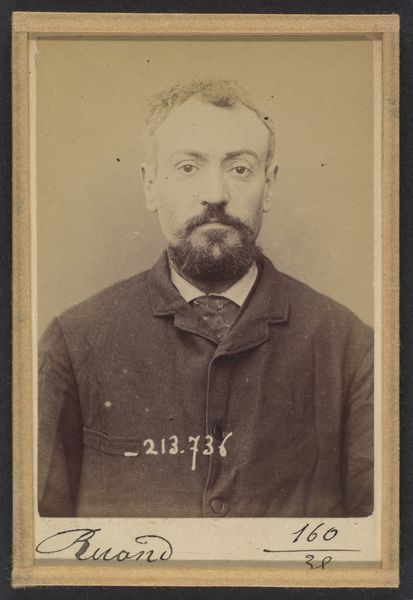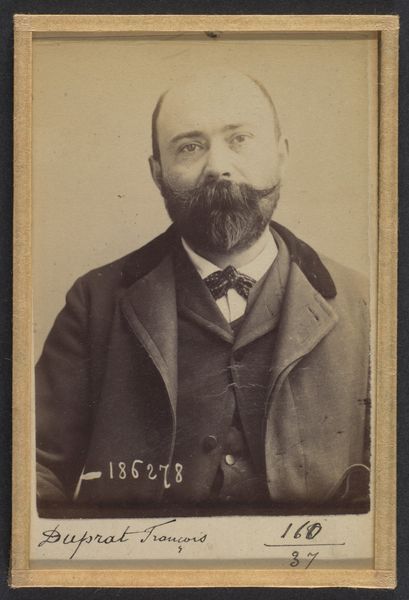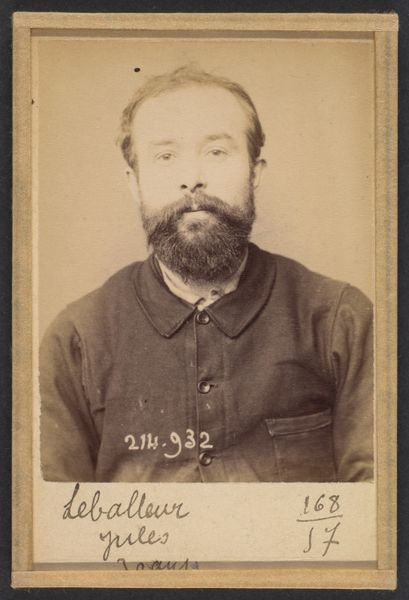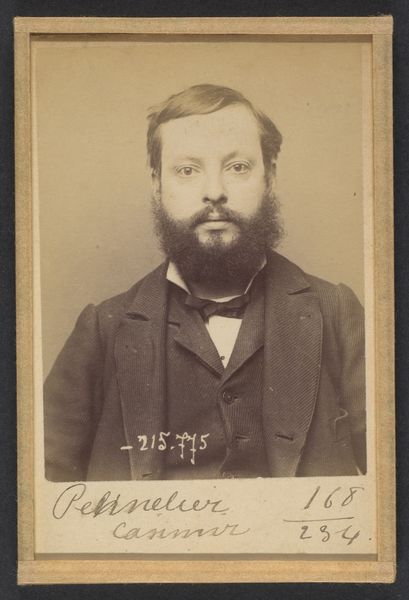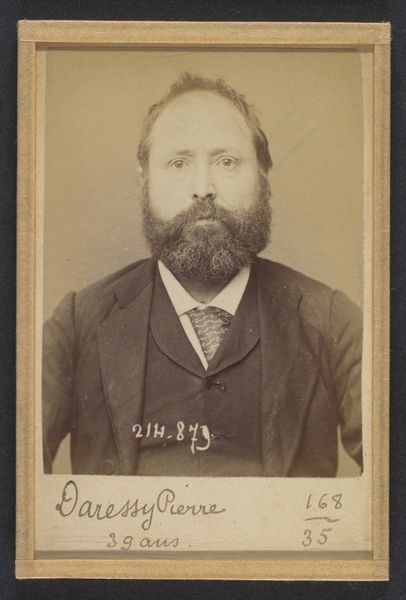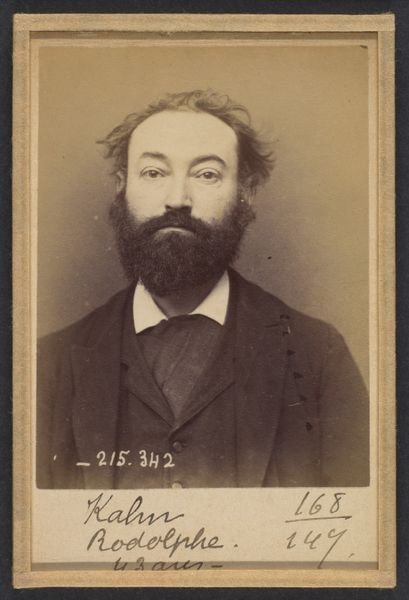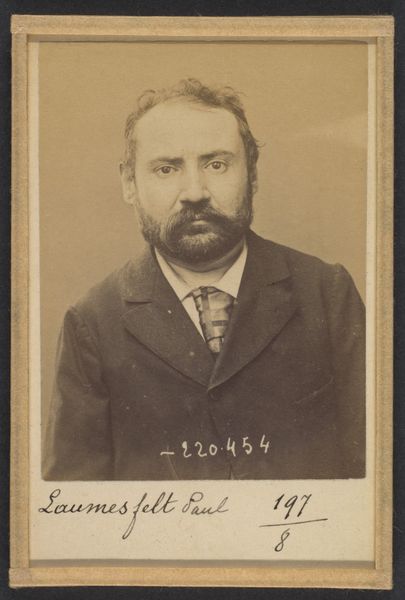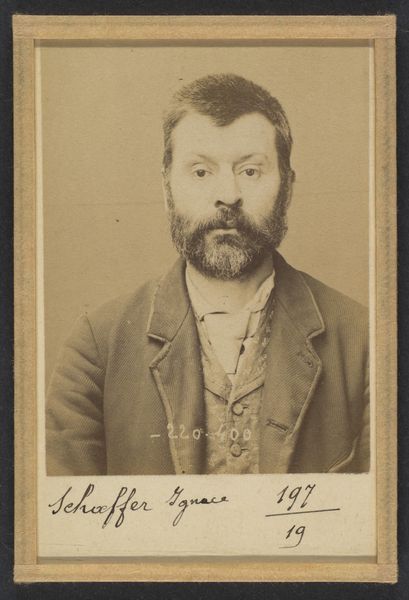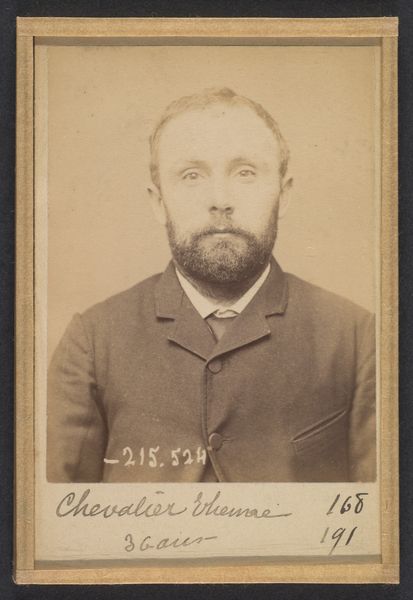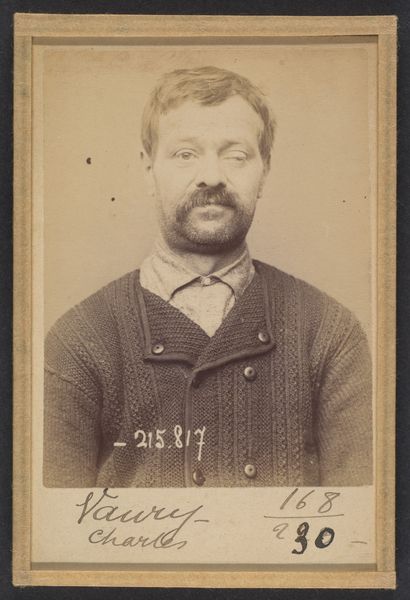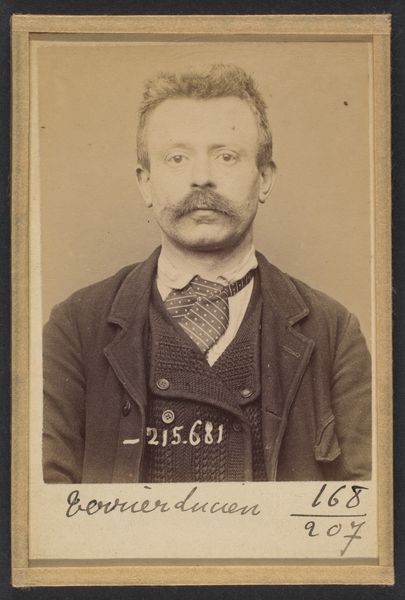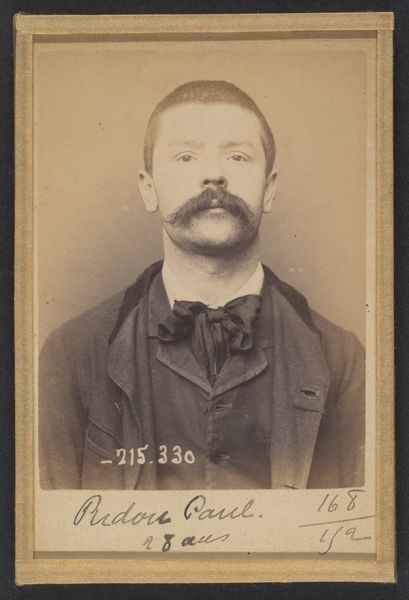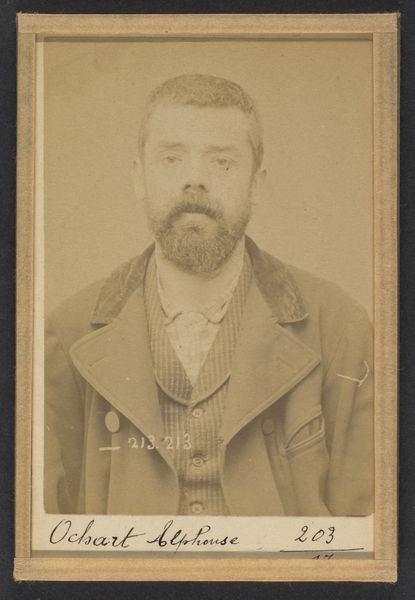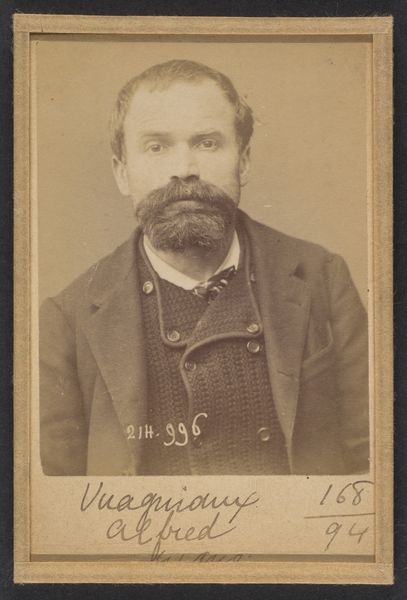
Bresson. Eugène, Marie. 30 ans, né le 4/7/63 à Chaumont (Haute-Marne). Avocat. Anarchiste. 20/1/94. 1894
0:00
0:00
photography, gelatin-silver-print
#
portrait
#
photography
#
gelatin-silver-print
Dimensions: 10.5 x 7 x 0.5 cm (4 1/8 x 2 3/4 x 3/16 in.) each
Copyright: Public Domain
Editor: This is Alphonse Bertillon’s gelatin silver print from 1894, titled "Bresson. Eugène, Marie. 30 ans, né le 4/7/63 à Chaumont (Haute-Marne). Avocat. Anarchiste. 20/1/94." The directness of the portrait is really striking, but also quite unsettling. What do you make of it? Curator: This is a fascinating piece because it shows the intersection of art, science, and social control in the late 19th century. Bertillon was a French police officer and biometrics researcher who developed a system for identifying criminals through precise body measurements and photography. This portrait is not about aesthetics; it's a tool for social engineering, attempting to fix identity through visual categorization. Editor: So it’s like a mugshot, but more systematic? I can see that in the clinical gaze and the inscription. Curator: Precisely. It’s a key example of how photography was used by institutions to classify and manage populations. The subject, identified as an anarchist, highlights the political dimensions. Consider who commissions these images, who is depicted, and how these images circulated? These factors greatly influenced its perception. Editor: It’s unsettling to think of photography used in that way – as a means of control, but I guess art can also be a record of how these systems worked. Are there artistic elements that maybe challenge this purely functional intent? Curator: Well, the composition, framing and lighting while standardized for identification, also have a photographic aesthetic of the period. The use of portraiture even within this context, raises questions about individual identity versus categorization. It really highlights the power dynamics inherent in the act of representation itself. Editor: That's fascinating, it gives a lot more nuance to the image. Thank you. Curator: Absolutely, thinking about the socio-political context always reveals new layers.
Comments
No comments
Be the first to comment and join the conversation on the ultimate creative platform.
